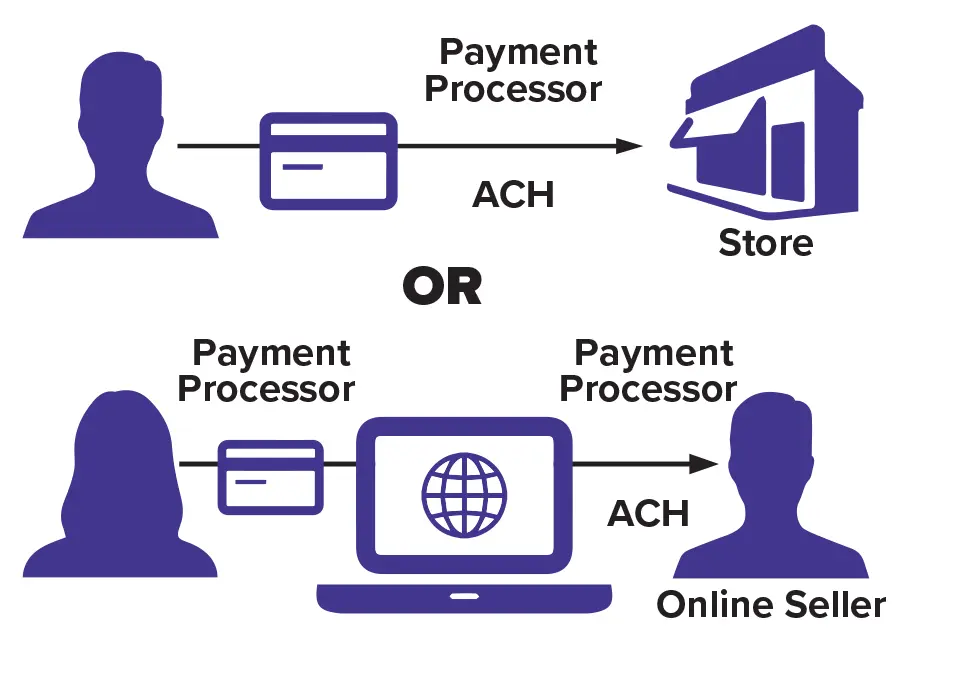The fintech industry has transformed the financial world by introducing technology-driven solutions that streamline processes, enhance customer experience, and increase efficiency. This article will delve deep into what fintech means, its definition, industry applications, and its impact on banking, covering the most commonly searched questions on the subject.
What is Fintech Meaning?
“Financial technology,” encompasses a wide range of applications, from online banking and mobile payments to investment platforms and financial software. The term signifies the integration of technology into financial services, aiming to make transactions faster, more efficient, and accessible to users worldwide.
It has changed how consumers and businesses interact with financial services, influencing areas like payments, lending, wealth management, and even personal finance management. This shift is making traditional financial systems more innovative and consumer-centric.
What is Fintech Industry?
The fintech industry refers to the businesses, startups, and solutions dedicated to innovating financial services through technology. From small mobile apps to large companies, the industry is diverse and growing at an unprecedented rate.
Key components of the industry include:
- Payments: Digital wallets, payment processing, and contactless transactions.
- Banking: Online banks and neo-banks that offer a digital-only experience.
- Insurance (Insurtech): Streamlined insurance processes and personalized policy offerings.
- Investment: Robo-advisors, peer-to-peer lending, and automated trading platforms.
Drawing insights from fintech businesses with various models, these figures highlight the impact on the global financial landscape:
- The collective market value of 48 unicorns has now surpassed $187 billion, accounting for just over 1% of the entire global banking sector.
- Projected to grow at a compound annual growth rate (CAGR) of 9.6%, the market is expected to reach $37,343.95 billion by 2026.
- Digital payments represent around 25% of the market, standing out as a key driver of product adoption.
- With a CAGR of 10-12%, e-commerce remains a central force behind expansion.
Intriguing, isn’t it? As these transformative shifts reshape consumer banking, payments, money transfers, insurance, asset management, and private capital, you may wonder how to keep up in such a fast-evolving landscape.
The rapidly growing sector has become a hub for specialized financial software, emerging as a one-stop shop for modern financial needs. If terms like NFTs, Ethereum, and Bitcoin feel overwhelming, you’re not alone; this space is new for many.
As David Brear put it, “Technological innovation will drive the banking industry forward for years, and if the big banks don’t embrace it, fintech firms and tech giants will step in to fill the gap.”
How Financial Technology is Shaping the Future
Fintech can be defined as any technology that automates, enhances, or enables financial services for both consumers and businesses. Tools and platforms focus on improving the efficiency of traditional finance processes and introducing new, tech-driven methods for handling money. Examples include digital payment systems, crowdfunding platforms, and blockchain-based solutions.
Financial Technology Definition
Financial technology uses advanced software and algorithms to provide digital solutions for traditional financial services. This includes everything from mobile payment systems to AI-driven financial planning tools. Financial technology allows financial service providers to:
- Reduce operational costs by automating manual processes.
- Enhance customer experience with faster and more personalized services.
- Expand reach by catering to underserved populations via digital channels.
What Does Fintech Mean & Its Impact on Banking
The application of technology in finance to improve and simplify processes, often making them faster and more user-friendly. At its core, it strives to remove friction in financial transactions by implementing innovative technologies such as blockchain, artificial intelligence, machine learning, and cloud computing.
What is Fintech in Banking?
This innovative industry has made significant inroads into the banking sector, challenging traditional banks to adopt new technologies and adapt to evolving customer needs. Examples of innovations in banking include:
- Digital-Only Banks: Banks that operate solely online, eliminating the need for physical branches.
- Mobile Banking: Banks that allow users to conduct transactions entirely through mobile apps.
- Blockchain-Based Transactions: Blockchain technology ensures transparency and security in financial transactions, especially in cross-border payments.
By adopting solutions, banks can reduce costs, enhance security, and offer more user-friendly services, meeting the expectations of modern consumers who prioritize convenience and speed.
Real-World Examples
Now that you have a foundational understanding, let’s explore some key examples that show how these innovations have transformed traditional financial activities and shaped the industry.
Online and Mobile Payment Systems
Fintech companies have fundamentally transformed the way people and businesses transact, largely through the evolution of online and mobile payment systems. The idea of transferring money through mobile devices was once visionary; now, it’s a common, preferred method of payment. Digital wallets, like Apple Pay and Google Wallet, have created a seamless and secure way to make payments, moving society closer to a cashless economy. This shift has not only accelerated the growth of financial tech solutions but has also positioned online payments as a core element in everyday transactions, with the demand for mobile payment options consistently rising in the financial technology sector.
Trading Platforms
Trading and investments have become crucial components of financial solutions as more people seek financial growth through platforms that make trading accessible and straightforward. The advancements have made it possible for both experienced and novice investors to buy and sell stocks, bonds, and even engage in foreign exchange trading. Platforms like Robinhood and E*TRADE offer user-friendly experiences, allowing people to invest using their smartphones or computers, removing traditional barriers to entry. These fintech trading solutions provide real-time access to financial markets, appealing to individuals looking to manage investments independently or with the help of financial technology consulting firms.
Cryptocurrency and Blockchain
One of the most transformative examples is the emergence of cryptocurrency and blockchain. The integration of blockchain technology allows for secure, transparent financial transactions, reducing the risk of fraud and enhancing data security. Cryptocurrency transactions, such as Bitcoin and Ethereum, are now widely recognized methods of financial exchange, representing the cutting-edge of innovation. By enabling decentralized, peer-to-peer transactions, blockchain technology is reshaping the landscape of the financia tech industry, offering a new way to store, verify, and exchange financial data without reliance on traditional financial institutions.
Fintechs Companies Leading the Revolution
Fintechs are companies specializing in the application of technology to financial services, often focused on disrupting and modernizing traditional finance. These companies can range from startups to established tech giants that provide innovative solutions for payments, lending, investing, and more.

Examples of Leading Companies
- Stripe: Known for simplifying online payments for businesses.
- Robinhood: Provides commission-free trading and investment tools.
- Square: Offers a range of digital payment solutions and point-of-sale systems for small businesses.
- PayPal: One of the earliest players in digital payments, now a global leader.
These offer unique services that address gaps in traditional financial systems, making finance more accessible and tailored to user preferences.
Enhancing Customer Experiences and Efficiency
Fintech has made financial services more accessible and transparent. It empowers consumers to manage their finances independently through apps and platforms tailored to specific needs, such as budgeting, investing, and borrowing.
Revolutionizing Modern Finance
Thanks to technological advancements, businesses no longer limit themselves to traditional finance models. The revolution and innovative solutions are at the forefront of this shift, transforming how financial services operate. With the maturity of technology at an all-time high, companies—often with the support of fintech consultants—are leveraging advanced solutions to reach new levels of efficiency and customer satisfaction.
It is not just about the integration of technology into finance; it’s a fundamental transformation that has made financial services faster, more affordable, and more effective. This revolution has introduced a range of products and services that were previously unimaginable, including streamlined banking, simplified insurance processes, and digital asset management. By embracing financial technology consulting, businesses can harness these innovations to enhance customer experiences and maintain a competitive edge.
Financial technology as a Pillar of the Financial System
In simple terms, financial technology is now one of the foundational elements of the global financial system. With the rise of intelligent software development, it has become a core element of how companies strategize and scale, bridging the gap between financial needs and technological solutions. Financial technology Software developers are crucial in creating systems that can transform how businesses handle transactions, manage investments, and connect with clients. These advanced solutions empower companies to offer personalized services and create a seamless, customer-centric experience.
The Power Behind the Revolution
So, what’s the driving force behind this powerful sector? Let’s dive into some of the main reasons financial solutions has become indispensable:
- Efficiency and Speed: Fintech streamlines financial transactions, making them faster and more efficient than traditional banking processes. This not only benefits businesses by reducing costs but also enhances customer satisfaction.
- Accessibility: Financial tech solutions have made it easier for individuals and businesses to access financial services regardless of geographical constraints. From mobile banking to online lending platforms, fin technology has democratized finance.
- Cost Reduction: By eliminating intermediaries and automating processes, this innovation has significantly lowered transaction costs for businesses and consumers alike.
- Security and Transparency: Financial innovations, particularly blockchain technology, have enhanced the security and transparency of financial transactions, reducing the risk of fraud.
- Customer-Centric Services: It allows for highly personalized financial services, enabling easy accessibiltiy
Promotes Economic Development
The ecosystem has become a critical driver of economic development, with its deep-rooted connection to economic growth and job creation. By fostering financial inclusion and enabling innovative solutions, financial solution tech has not only boosted income opportunities—especially in emerging markets where many people live in poverty—but has also expanded access to essential financial services. A financial software development company can support businesses in leveraging financial tech solutions to achieve this impact.
Through digital technology and innovative methodologies, fin technology has transformed the ease of financial transactions and digital data collection, thereby creating more employment opportunities. This dynamic field focuses on delivering financial services using advanced technology, covering activities such as asset transfers, payments, and online investments. Acting as a bridge between service providers and consumers, the financial technology ecosystem enables innovation in financial services and enhances financial inclusion by narrowing the gap between technology and business models.
Key Contributions to Economic Growth:
- Financial Inclusion: Fin technology broadens access to financial services for underserved populations, empowering individuals and businesses to participate more fully in the economy.
- Job Creation: The rise of financial solutions has opened new employment opportunities in technology, customer service, product development, and data analysis within the financial services sector.
- Innovation in Financial Services: Financial tech encourages creative solutions, such as mobile banking and peer-to-peer lending, which streamline financial transactions and make them more accessible.
- Boosting Income Levels: By providing access to financial tools and services, fin solution technology helps individuals increase their income potential and supports small businesses in growing sustainably.
- Bridging Gaps Between Technology and Finance: Fin technology serves as a platform for developing solutions that address the diverse financial needs of consumers and businesses, helping to create a robust economic framework.
Conclusion
Financial technology represents a revolution in the financial services industry, disrupting traditional finance and banking models with innovative ideas and technologies that improve financial management and save time. For businesses seeking to navigate this dynamic landscape, partnering with a software development company can provide strategic advantages.
Whether it’s in banking, the stock market, or investment management, a client-centric software development firm can support your organization’s goals by delivering innovative solutions tailored to today’s business challenges. With a focus on long-term ROI, these companies provide the technological foundation necessary for sustainable growth in a competitive global market.
Interested in Solutions? Connect with a fintech development firm to explore how tailored strategies can fuel your organization’s success.
Fintech is transforming how financial services are delivered, making finance more accessible, affordable, and adaptable. As more consumers and businesses turn to financial tech solutions, the industry will continue to evolve and introduce groundbreaking innovations that redefine our interaction with finance.







